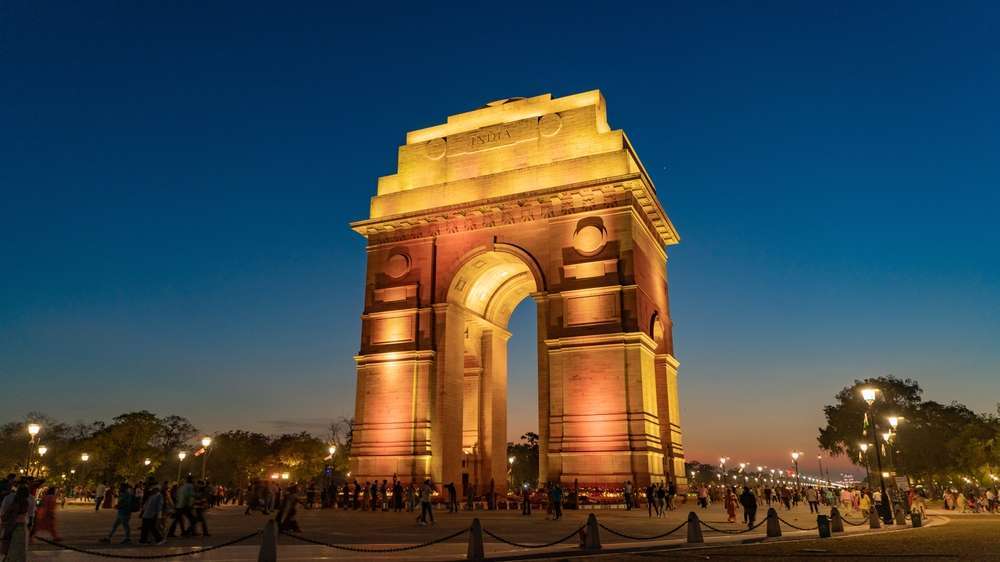India, with its rich history, diverse cultures, and magnificent heritage sites, offers travelers a treasure trove of cultural experiences waiting to be explored. From ancient monuments and UNESCO World Heritage sites to vibrant festivals and traditional arts, cultural tourism in India provides immersive journeys that transport visitors through time and space. This article delves into the realm of cultural tourism experiences, highlighting the significance of India’s heritage sites and the immersive journeys they offer to travelers seeking to unravel the country’s cultural tapestry.
The Significance of Cultural Tourism in India
Cultural tourism plays a pivotal role in India’s tourism industry, offering visitors a glimpse into the country’s vibrant heritage, traditions, and customs. The significance of cultural tourism in India lies in:
Preservation of Heritage: Cultural tourism promotes the preservation and conservation of India’s rich cultural heritage, including historic monuments, archaeological sites, and traditional arts, safeguarding them for future generations.
Promotion of Cultural Exchange: Cultural tourism fosters cultural exchange and mutual understanding between travelers and local communities, facilitating interactions, cross-cultural learning, and appreciation for diverse cultural expressions.
Economic Development: Cultural tourism contributes to local economies by generating employment opportunities, supporting small businesses, artisans, and cultural practitioners, and stimulating economic growth in heritage-rich regions.
Promotion of Identity and Pride: Cultural tourism enhances local pride and identity by showcasing India’s cultural diversity, heritage, and artistic legacy on a global stage, instilling a sense of pride and ownership among communities.
Immersive Cultural Experiences in India
India’s heritage sites offer a myriad of immersive cultural experiences that transport travelers to bygone eras and enchanting worlds:
UNESCO World Heritage Sites: India is home to 38 UNESCO World Heritage sites, including iconic landmarks such as the Taj Mahal, Qutub Minar, Red Fort, and Hampi, offering travelers the opportunity to explore architectural marvels, historical monuments, and cultural landmarks.
Heritage Walks: Heritage walks in cities such as Delhi, Jaipur, and Kolkata provide immersive experiences that unravel the city’s history, culture, and heritage, taking travelers on guided tours through narrow lanes, historic neighborhoods, and iconic landmarks.
Festivals and Celebrations: India’s vibrant festivals and cultural celebrations, such as Diwali, Holi, Durga Puja, and Navratri, offer immersive experiences that showcase the country’s festive spirit, rituals, music, dance, and culinary traditions.
Traditional Arts and Crafts: India’s rich artistic heritage is showcased through traditional arts and crafts such as pottery, handloom weaving, embroidery, painting, and sculpture, with opportunities for travelers to visit artisan workshops, craft villages, and cultural centers.
Culinary Experiences: Indian cuisine is an integral part of the country’s cultural heritage, with diverse regional cuisines, street food delicacies, and culinary traditions waiting to be savored. Culinary tours, food walks, and cooking classes offer immersive experiences that delve into India’s gastronomic delights.
Living Heritage Experiences: Living heritage sites such as Varanasi, Amritsar, and Udaipur provide immersive experiences that allow travelers to witness age-old traditions, rituals, and customs, including religious ceremonies, folk performances, and traditional ceremonies.
Iconic Cultural Destinations in India
India boasts a plethora of iconic cultural destinations that epitomize the country’s rich heritage and cultural legacy:
Agra: Agra is home to the iconic Taj Mahal, a UNESCO World Heritage site and one of the Seven Wonders of the World, renowned for its exquisite Mughal architecture, intricate marble craftsmanship, and timeless beauty.
Jaipur: Known as the “Pink City,” Jaipur is a vibrant cultural hub famous for its historic forts, palaces, and colorful bazaars, including the Hawa Mahal, Amer Fort, City Palace, and Jaipur’s bustling markets.
Varanasi: Varanasi, the spiritual capital of India, is a sacred city on the banks of the Ganges River, revered for its ghats, temples, and religious ceremonies, offering travelers a glimpse into Hindu rituals, spiritual practices, and ancient traditions.
Khajuraho: Khajuraho is renowned for its exquisite temples adorned with intricate carvings and sculptures depicting scenes from Hindu mythology, Kama Sutra, and daily life, showcasing India’s architectural and artistic heritage.
Hampi: Hampi is a UNESCO World Heritage site and ancient city in Karnataka, known for its magnificent ruins, temples, and boulder-strewn landscapes, offering travelers a glimpse into the Vijayanagara Empire’s glorious past.
INDIAN VISA FOR IRELAND CITIZENS
Responsible Cultural Tourism Practices
As cultural tourism in India continues to flourish, it is essential to adopt responsible tourism practices to ensure the preservation and sustainability of heritage sites and cultural traditions:
Respect for Heritage: Travelers should respect cultural norms, traditions, and religious sentiments when visiting heritage sites, monuments, and sacred places, avoiding disruptive behavior, littering, and vandalism.
Support Local Communities: Travelers can support local communities by patronizing local businesses, artisans, and cultural practitioners, purchasing authentic handicrafts and souvenirs, and participating in community-based tourism initiatives.
Environmental Conservation: Travelers should minimize their environmental footprint by practicing responsible waste management, conserving water and energy, and respecting wildlife and natural habitats when visiting cultural and natural sites.
Cultural Sensitivity: Travelers should educate themselves about local customs, traditions, and etiquette before visiting cultural sites, respecting cultural diversity, and engaging with local communities in a respectful and culturally sensitive manner.
Conclusion
Cultural tourism experiences in India offer travelers a kaleidoscope of immersive journeys that celebrate the country’s rich heritage, traditions, and cultural diversity. From UNESCO World Heritage sites and historic monuments to vibrant festivals, traditional arts, and living heritage experiences, India’s cultural treasures provide a tapestry of experiences that captivate, inspire, and enrich travelers’ lives. By embracing responsible tourism practices, supporting local communities, and fostering cross-cultural understanding, cultural tourism in India has the power to promote sustainable development, preserve cultural heritage, and create meaningful connections between people and places, making every journey a transformative exploration of India’s cultural legacy.
Read more: Digital Nomadism in New Zealand’s Serene Settings















